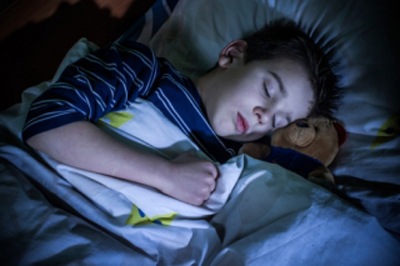 Study finds link between sleep quality and grades of schoolchildren in math and languages
Study finds link between sleep quality and grades of schoolchildren in math and languages
By Cynthia Lee
Making sure school-aged kids get to sleep at a regular hour is often a struggle for parents. But a study by researchers at McGill and the Douglas Mental Health University Institute suggests it’s well worth the effort: the researchers found that a good night’s sleep is linked to better performance in math and languages – subjects that are powerful predictors of later learning and academic success.
In findings published recently in the journal Sleep Medicine, the researchers reported that “sleep efficiency” is associated with higher academic performance in those key subjects. Sleep efficiency is a gauge of sleep quality that compares the amount of actual sleep time with the total time spent in bed.
While other studies have pointed to links between sleep and general academic performance, the Montreal scientists examined the impact of sleep quality on report-card grades in specific subjects. The upshot: with greater sleep efficiency, the children did better in math and languages – but grades in science and art weren’t affected.
“We believe that executive functions (the mental skills involved in planning, paying attention, and multitasking, for example) underlie the impact of sleep on academic performance, and these skills are more critical in math and languages than in other subjects,” says Reut Gruber, a clinical child psychologist who led the study.
Low academic achievement in children is a common and serious problem that affects 10-20 per cent of the population. “Short or poor sleep is a significant risk factor for poor academic performance that is frequently ignored,” says Gruber, who is a researcher at the Douglas Institute and professor in McGill’s Department of Psychiatry.
Gruber’s research team, in collaboration with the Riverside School Board in Saint-Hubert, Quebec, studied 75 healthy children between 7 and 11 years of age. The children’s nighttime sleep was monitored by actigraphy, which uses a wristwatch-like device to evaluate sleep by measuring movements. “We averaged the data over five nights to build the children’s habitual sleep patterns and correlated the data with their report-card grades,” Gruber says.
The findings underscore the importance of identifying sleep issues that may otherwise go unnoticed, Gruber says. That doesn’t mean parents need to rush out and have their kids tested at sleep clinics – but it does point to a need for pediatricians to incorporate questions about sleep into routine checkups, she adds.
“I think many kids might have some sleep issues that nobody is aware of,” she says. “And if the pediatrician doesn’t ask about it, we don’t know that it’s there. Regular screening for possible sleep issues is particularly important for students who exhibit difficulties in math, languages or reading.”

The article, “Children who get their ZZZZZZs have better chance at getting A’s,” published by the McGillReporter on January 12, 2015, seems to be a close translation of the article “Tout part d’une bonne nuit de sommeil : l’influence de la qualité du sommeil sur la performance scolaire des enfants,” which was published by L’Echo de Laval on January 9, 2015 (www.lechodelaval.ca/actualites/societe/207566/tout-part-dune-bonne-nuit-de-sommeil-linfluence-de-la-qualite-du-sommeil-sur-la-performance-scolaire-des-enfants ). Paragraph by paragraph, the ideas are the same in both articles. As McGill’s official newspaper, the McGillReporter should somehow have mentioned that it published a renamed translated article from another journal.
No, in fact, the original article was posted on the McGill Newsroom page (http://www.mcgill.ca/newsroom/channels/news/it%E2%80%99s-all-good-night%E2%80%99s-sleep-240986) on Jan. 8, under the headline “It’s all in a good night’s sleep.” As The Reporter often does with McGill-generated material, we reposted it.
It would appear that L’Echo de Laval translated and reposted the original press release.